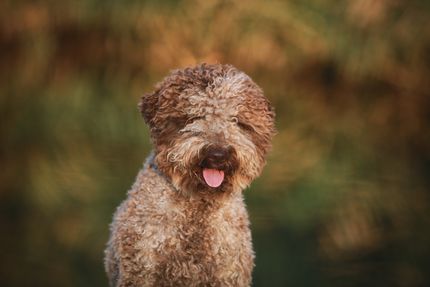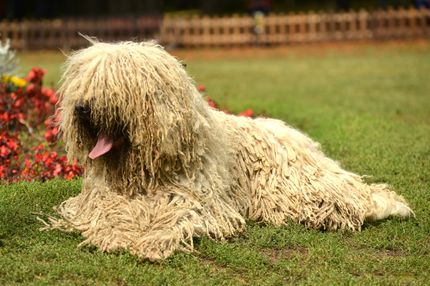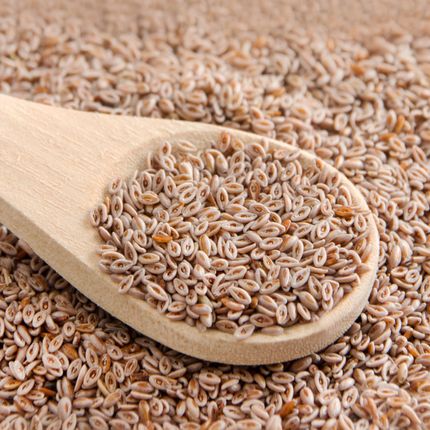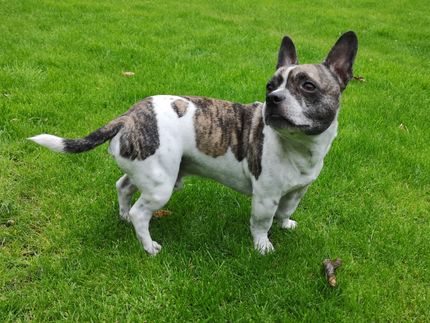Facts & Origin
Origin and history
- Origin: The small poodle originally comes from Germany, where the name "poodle" is derived from the German word "pudeln" (to splash in water).
- Development: Poodles were originally used for water hunting. Their ability to swim well and their pronounced "retrieving instinct" made them valued hunting dogs.
- Popularity: Over the centuries, the Poodle developed from a hunting dog into a popular companion and show dog. The small poodle evolved from the standard poodle through selective breeding.
Suitability of the small poodle
- Family dog: Due to its friendly nature and adaptability, the Small Poodle is an excellent family dog.
- Agility and learning ability: The breed is known for its agility and quick learning ability. It is ideal for dog sports such as agility, obedience and trick training.
- Therapy and assistance dog: Their intelligence and empathy make them ideal therapy and assistance dogs.
Conclusion
The small poodle is more than just an attractive companion. Its versatile abilities, coupled with its history as a hunting dog, have made it one of the most popular dogs in the modern world. Whether as a family member, in various dog sports or as a therapy dog, the Small Poodle shows impressive adaptability and competence in a variety of roles. Its rich history and versatility make it a true gem in the world of dog breeds.
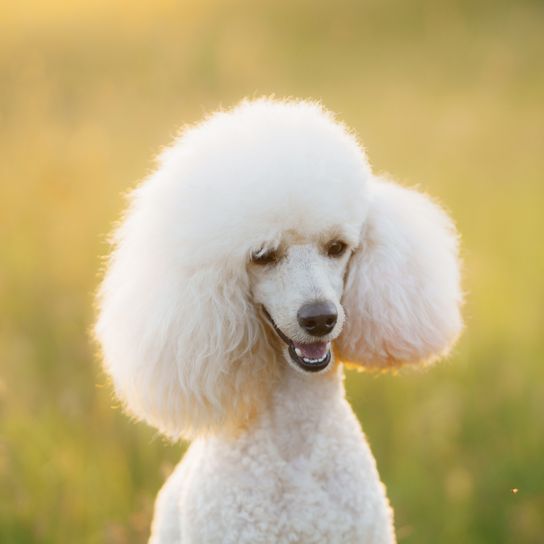
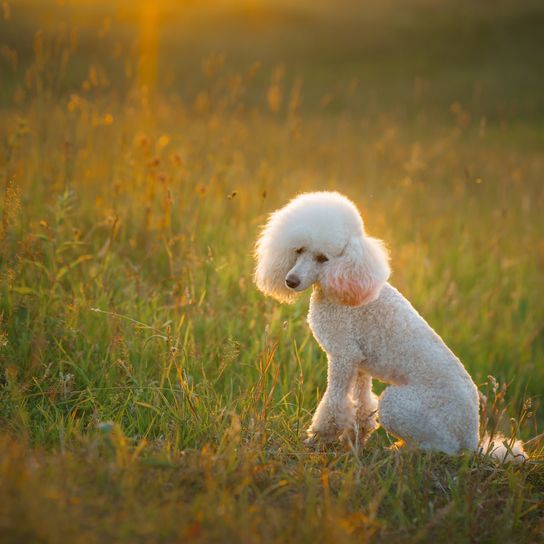
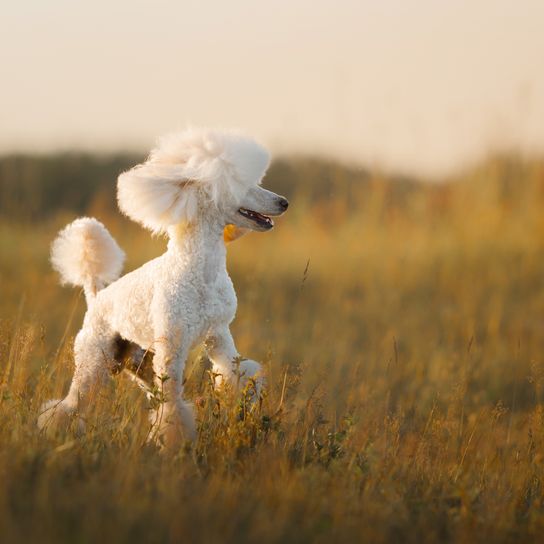

| Alternate Name | - |
| Origin | France |
| Life expectancy | 15 - 17 years |
| Care requirements | high-maintenance |
| Activity level | average to high |
| FCI group | Poodle |
| AKC group | not recognised |
| KC group | utility group |
Attitude, character and temperament of the breed
Character traits of the small poodle
- Intelligent and trainable: The Small Poodle is known for its exceptional intelligence. These dogs learn quickly and are therefore easy to train.
- Friendly and sociable: They are extremely friendly and sociable dogs that enjoy the company of people and other animals.
- Energetic and playful: Small Poodles are lively and playful. They love to play games and need plenty of exercise and mental stimulation.
Character of the miniature poodle
- Affectionate: Small Poodles build a strong bond with their owners and are often very affectionate.
- Sensitive: They are very sensitive and react to their owners' moods, which makes them excellent companion animals.
- Alert: With a natural alertness, Small Poodles are good watchdogs without being overly aggressive.
Handling and training
- Positive reinforcement: Positive training methods should be used in training, as Small Poodles can be sensitive to harsh treatment.
- Socialization: Early socialization is important to encourage their friendly nature and avoid fearfulness.
- Activities: They enjoy activities such as agility, obedience training and even trick training, which suits their need for mental stimulation.
Conclusion
The Small Poodle is an intelligent, adaptable and loving companion, ideal for families and individuals. Its playful and friendly nature coupled with its sensitivity makes it a wonderful pet. With the right training and sufficient mental and physical exercise, the Small Poodle is sure to become a valued member of any home.
Usage
Grooming the small poodle
- Coat care: The characteristic curly coat of the small poodle requires regular grooming. It should be trimmed every 4 to 6 weeks and brushed thoroughly at least once a week to prevent matting.
- Eyes and ears: Regular checking and cleaning of the eyes and ears are important to prevent infections.
- Dental care: Regular brushing helps to prevent dental problems.
Health of the small poodle
- Longevity: Small Poodles are known for their longevity and can live to a ripe old age if in good health.
- Common health problems: Common health concerns include hip dysplasia, eye disease and certain skin conditions.
- Screenings: Regular health checks at the vet help to identify and treat problems early.
Breeding the small poodle
- Responsible breeding: When breeding, only healthy animals with a good pedigree and appropriate health tests should be used.
- Hereditary diseases: Breeders should look out for hereditary diseases such as hip dysplasia and PRA (progressive retinal atrophy) and carry out appropriate health tests.
- Breed standard: It is important to adhere to the breed standard in order to maintain the quality and characteristics of the breed.
Conclusion
Caring for a Small Poodle requires attention and regular grooming to ensure their well-being. Their health is generally good, but regular veterinary check-ups and preventative care are important. When breeding, it is crucial to prioritize the health of the animals and respect the breed standard to maintain the integrity of this particular breed.


Coat texture and care
- Coat type: The coat of the small poodle is curly, soft and dense, which makes it an often chosen pet for allergy sufferers.
- Grooming intensity: The coat requires regular grooming. Frequent brushing and professional clipping every few weeks are necessary to prevent matting and knots.
- Variety of shearing styles: There are different shearing styles for small poodles, from the traditional lion shearing to more modern, low-maintenance styles.
Visual characteristics
- Appearance: Small Poodles have a balanced and elegant appearance. They are characterized by a square body shape and well-proportioned body features.
- Color Variety: Their coat color can vary, including black, white, brown, gray and apricot.
Size and weight
- Size: The Small Poodle's height at the withers is between 28 and 35 cm.
- Weight: An adult miniature poodle usually weighs between 6 and 9 kg, depending on individual body structure and health.
Conclusion
The Small Poodle is a small but robustly built dog with a characteristic curly coat that requires regular grooming. Its size and weight make it an ideal companion for different lifestyles and living situations. With its charming appearance and variety of coat colors, it fascinates dog lovers worldwide.










